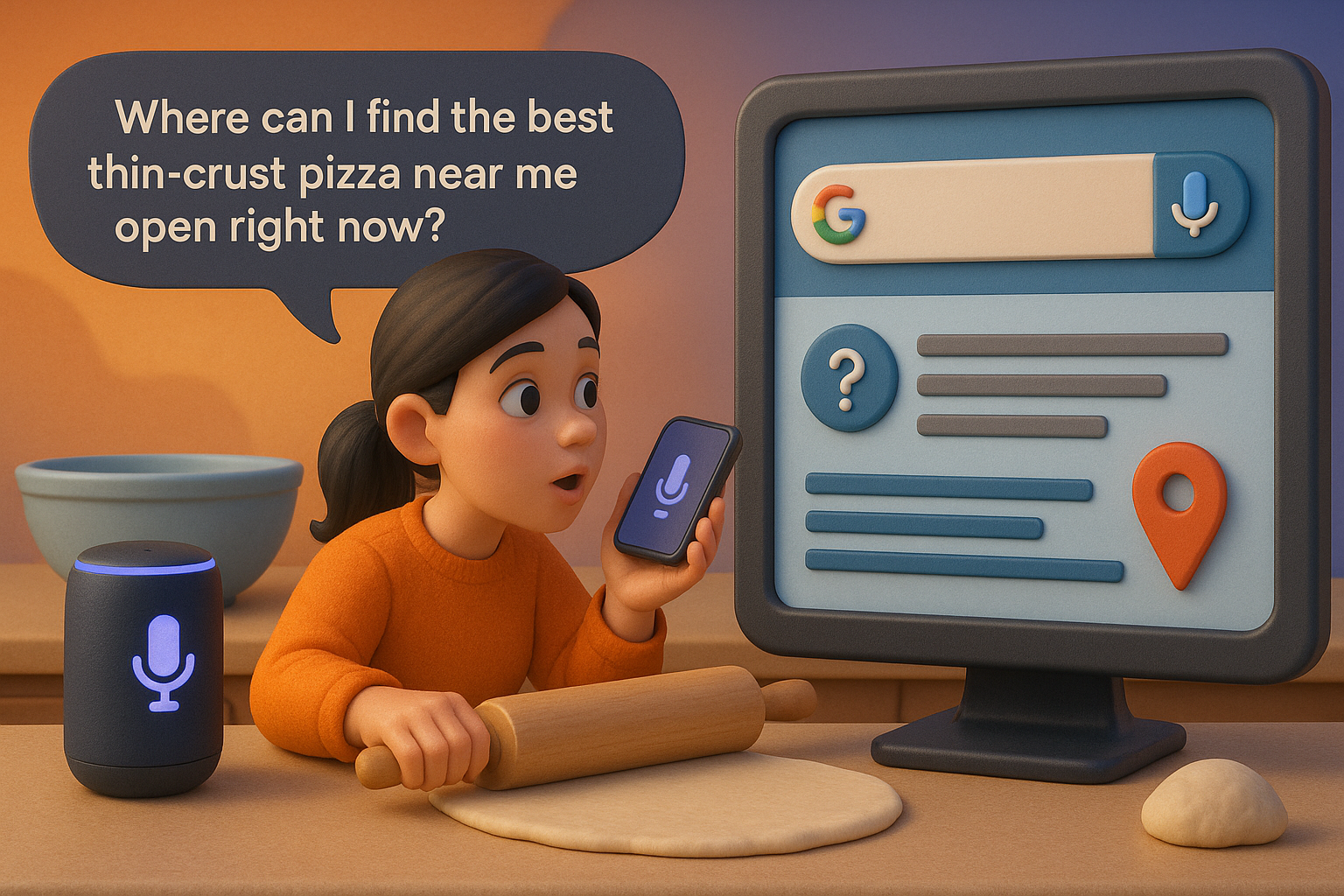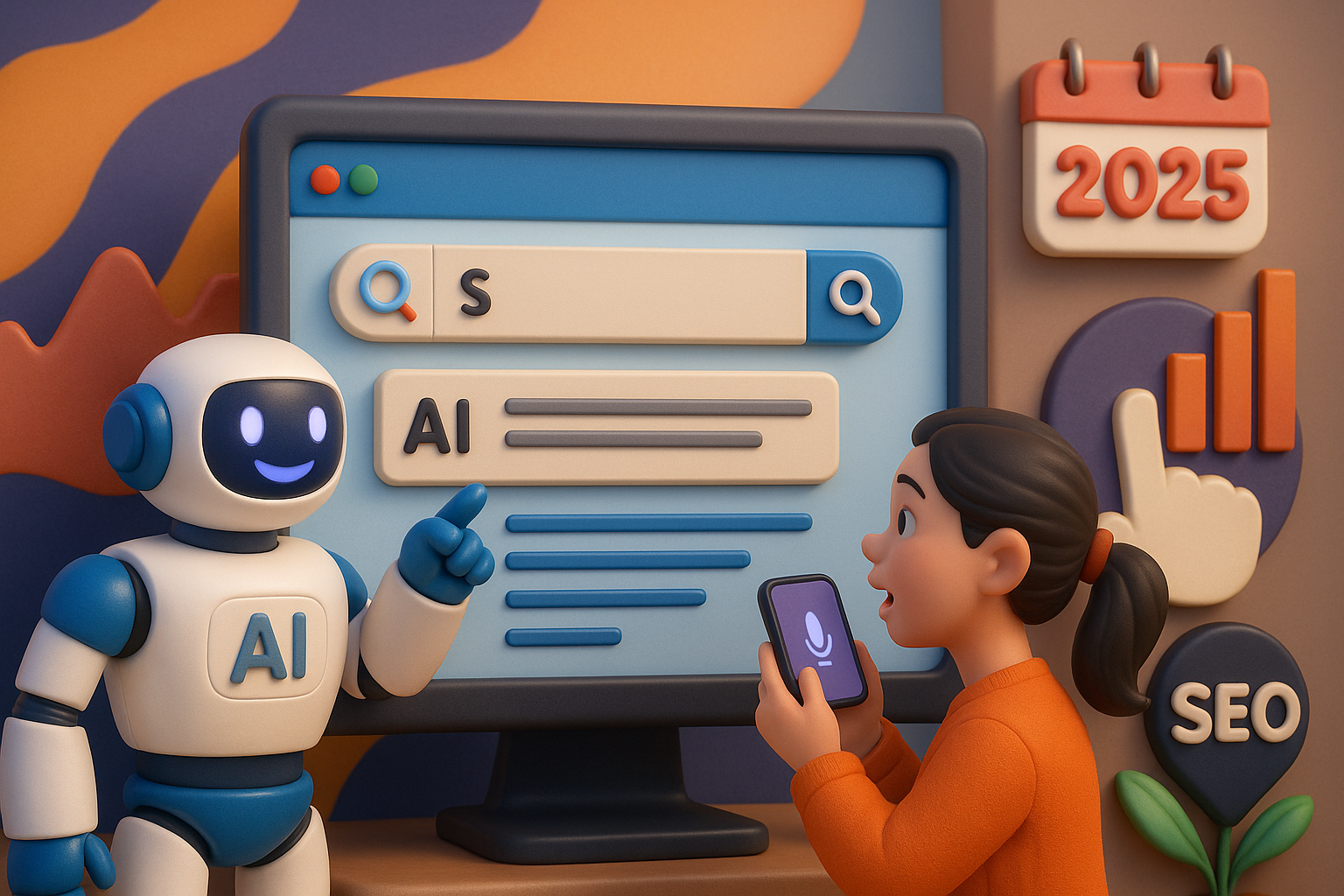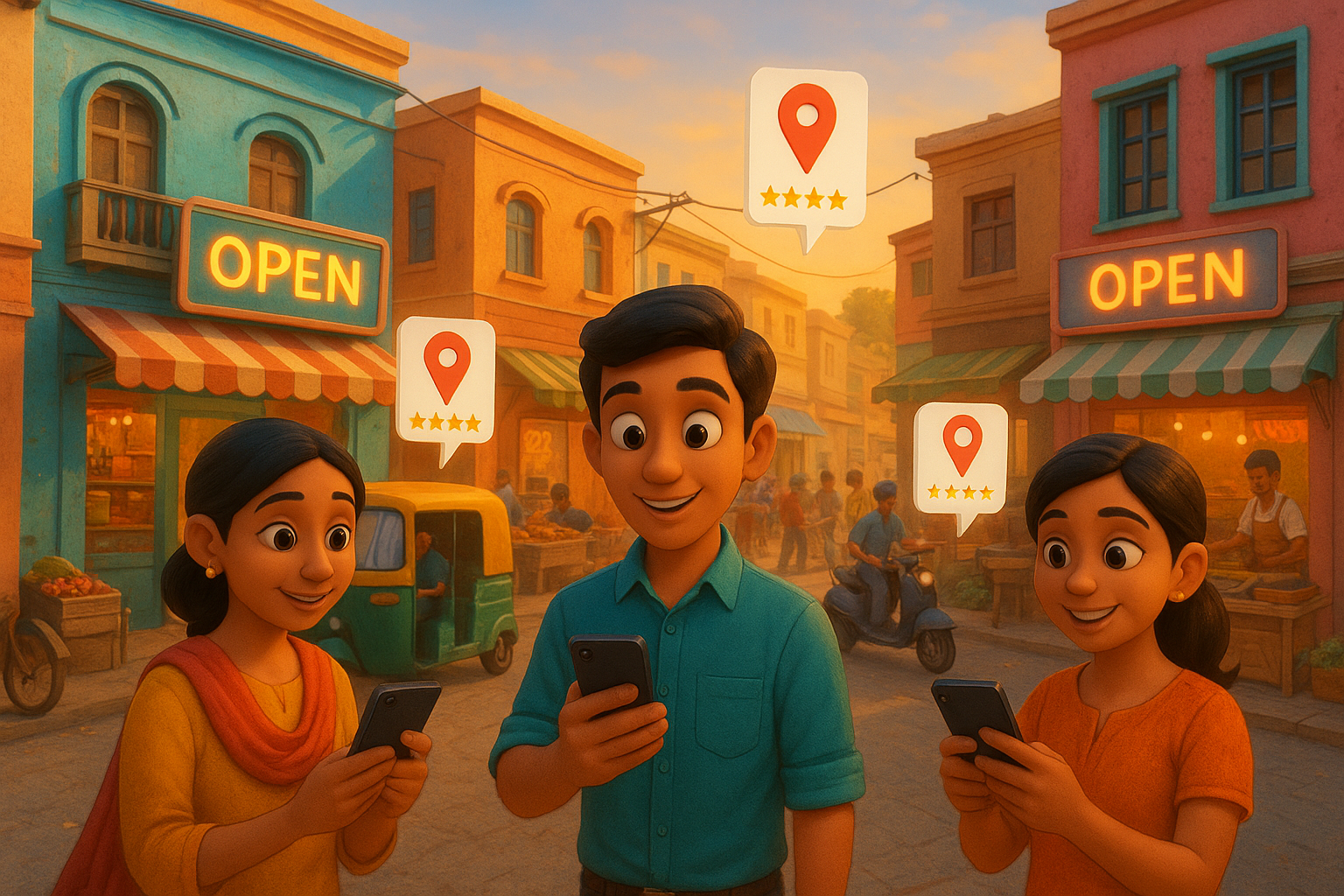SEO in 2025 is nothing like it was even a couple of years ago. And people who are unable to crack it make inaccurate statements like ‘SEO is Dead’. If you’re still fixated on keyword stuffing and backlink blitzes, it’s got going to work. It is time for a reality check.
Google, Bing, and other search engines have evolved dramatically, and they’re now powered by a much smarter ecosystem. It is the one that puts user experience along with intent, and context front and center.
So, what does that mean for businesses or for marketers, and creators? To get a better gist of it all let’s dive into the SEO shifts that are driven by artificial intelligence, voice search, and the growing dominance of zero-click results.
SEO Trends That are Revolutionizing How People See and Percieve
We understand that you are curious now, which is why we suggest you read ahead and learn how to grow faster and better with SEO in 2025.
AI Is Not Just a Trend—It’s the New SEO Brain
In 2025, AI Marketing isn’t just one of the heavy phrases that are thrown around at tech conferences. It’s the beating heart of modern SEO. Google’s Search Generative Experience (SGE) and similar initiatives are transforming how users interact with search engines. Instead of just listing blue links, AI in SEO delivers synthesized answers pulled from multiple sources. This particularly is reshaping how content is discovered and consumed.
This means your SEO strategy needs to shift from just ranking for keywords to becoming a source of authoritative accurate and well-structured information. Schema markup, FAQ sections, and content that clearly answers queries in a conversational yet precise tone are more critical than ever.
And let’s not forget AI tools like ChatGPT, Gemini, and Claude. These aren’t just for content creation anymore. They’re being used to simulate user behaviour. They are great at predicting search intent, and even model the impact of SEO changes before implementation. Smart marketers in 2025 aren’t just reacting to search trends, they’re predicting and preparing for them.
Voice Search: Your New SEO BFF (Best-Friendly Feature)
You know those times you Google something while your hands are deep in dough, or you’re driving and need a quick answer? In those situations voice search is the absolutely great solution. And it’s booming.
With the rise of smart assistants like Alexa, Siri, and Google Assistant becoming household fixtures, voice search queries are now more natural. They are question-based, and conversational. Instead of typing “best pizza NYC,” people are asking, “Where can I find the best thin-crust pizza near me open right now?”

voice search optimization means embracing long-tail keywords. It will also entail natural language processing, and content that sounds human. For this you need to stress on FAQs, local SEO, and structured data that helps search engines understand the who, what, when, and where of your content. Also, page speed and mobile optimization matter more than ever becaus voice searches are almost exclusively mobile.
Pro tip: Use conversational phrases in your headers and subheaders. You’re not just writing for readers anymore; you’re speaking to them.
Zero-Click Searches: When Ranking Doesn’t Mean Traffic
Here’s a twist: your page might rank #1, but you still don’t get the click. Welcome to the world of zero-click searches. This is the space where users find what they need directly on the search engine results page (SERP). This means featured snippets, People Also Ask (PAA) boxes, and knowledge panels that are stealing the spotlight.
In 2025, over 65% of searches end without a click. So, how do you win in this click-less world? By owning the SERP real estate. You should be aiming to become the source featured in those snippets by answering questions clearly. This is doable by using bullet points or numbered lists, and making your content easy to skim.
It’s no longer just about click-through rates (CTR), it’s about creating visibility and brand authority. If your brand becomes the default answer provider, you’ve essentially hacked the trust algorithm. Even without a click, your content still builds awareness, familiarity, and credibility.
Video and Visual Search Are Stealing the Show
Search engines are now watching and listening as much as they’re reading. Thanks to AI in digital marketing and advancements in image and video recognition. It is not surprising at all that visual and video search are exploding. Platforms like YouTube, TikTok, and even Pinterest are becoming powerful search engines in their own right.

Google Lens, for instance, lets users search using photos instead of text. This changes the game for e-commerce, even the landscape for fashion, home decor, and travel industries is rapidly shifting . You want to rank? You should optimize your images with descriptive file names along with alt text, and captions. For videos, make sure you’re using transcripts. They also need to have timestamps, and keyword-rich descriptions.
And yes, even YouTube search engine optimizations are evolving. In 2025, the algorithm prioritizes content that keeps people engaged longer and encourages community interaction through comments, likes, and shares. It’s not just about uploading anymore, it’s about curating experiences.
E-E-A-T and Human-Centric Content Still Rule
You might have heard of E-E-A-T (Experience, Expertise, Authoritativeness, Trustworthiness). In 2025, it’s not just Google’s preference; it’s a mandate. With AI-generated content flooding the internet, authenticity and credibility have become key differentiators.
Users (and algorithms) crave real stories. They are always seeking real insights, and real people. Content written by verified experts like contributors with credentials, and brands with a track record of reliability is what ranks.
We suggest that you keep adding value by being transparent about your sources. You should also keep updating outdated info, and adding personal insights or case studies.
It is simple today, don’t just chase trends—lead with value. Google’s algorithms are now sophisticated enough to gauge depth and usefulness beyond keyword density.
The Rise of Search Personalization and Predictive SEO
The SEO of 2025 is deeply personal. Every user sees a slightly different version of the internet. This depends upon their history, preferences, location, and even device. That means one-size-fits-all content is out. Dynamic content that adapts to user context is in.
Predictive SEO is also gaining ground. Using AI to analyze trends, seasonality, and historical data, businesses can now anticipate what users will search before they actually do. It’s like weather forecasting, but for keywords.
This is where tools like Google Trends, Semrush, and Ahrefs become your crystal balls. You’re not just optimizing for now—you’re optimizing for next.
What You Should Be Doing Right Now?

Okay, so how do you actually stay ahead?
- Focus on user intent: Ask what your audience really wants when they type or say a query.
- Optimize for featured snippets and voice answers: Write like you’re answering a friend’s question.
- Invest in visual and video SEO: Search isn’t just about words anymore.
- Use structured data: Help machines help you.
- Embrace AI tools: For ideation, analysis, and automation.
Double down on E-E-A-T: Be real, be relevant, be reliable.
Final Thoughts: SEO Isn’t Dead—It’s Just Smarter
SEO in 2025 is more dynamic, personalized, and intelligent than ever. It rewards those who focus on user value over tricks and transparency over tactics. It’s not about gaming the system anymore. It’s about understanding it.
Whether you’re a business owner, content creator, or digital marketer, the path to visibility lies in evolving with search—not chasing it. So speak like your audience, think like an algorithm, and never stop adapting. Because in this SEO game, change isn’t the enemy. It’s your biggest ally.





 +91-8418866099
+91-8418866099
